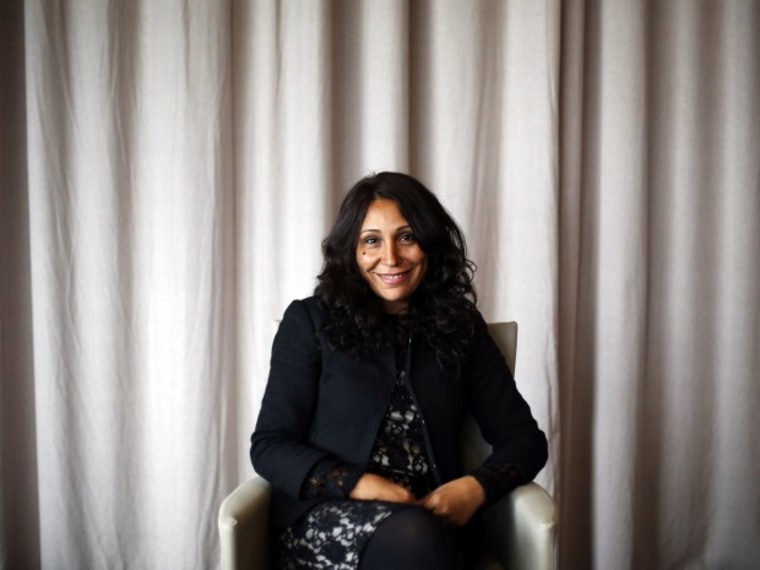As the first woman filmmaker in Saudi Arabia, Haifaa Al Mansour was forced to direct most of her upcoming movie from a monitor inside a trailer, and correspond with actors using a walkie-talkie. It was "very frustrating," she recently told Afternoon MoJoe.
"I was confined in this little space. But it's very important not to stop because of obstacles," she said. "It is very important to believe in the power of: We can change things. We can do things if we really try hard and work hard."
The country forbids public interaction between men and women. The Saudi government granted her permission to shoot the film, but she was frightened that she wouldn't be able to complete production because she went against the country's conservative culture where people "don't understand film," she said.
Wadjda is the first feature movie shot entirely in her home country of Saudi Arabia, where women are treated as minors. It tells the story of a 10-year-old girl who enters a Quran-reading contest with the goal of using the prize money to buy her own bicycle. The Saudi monarchy prohibits women from participating in sports and forbids them to drive cars. The country is slowly loosening its restrictive laws, however, as women can now ride motorbikes and motorcycles in certain parks and recreational areas. In addition, more women are preparing to participate in upcoming Olympic Games.
Al Mansour wanted to make a film about everyday life that was a combination of a documentary and her own experiences growing up in the Middle Eastern country. She said she hopes her efforts will invite other women--and men--film directors to do the same.
"I wasn't trying to neglect the fact that Saudi Arabia is a very difficult place for women, but I wanted to show how we can change that difficult situation; how we can be happy and how we can embrace higher values about hope--and pursuing your dream, work ethics--and move away from all that restrain," said Al Mansour.
The film is set for release in the United States on Sept. 13. It was released in the United Kingdom earlier this summer.
"It is worth the struggle," said Al Mansour, adding that she wants to make another film in Saudi Arabia. "I feel like it's very important to bring art and make the country more tolerant and open it up."
Be sure to watch other web-exclusive interviews and roundtable discussions right here in the Afternoon MoJoe section of the website.
(Watch more on Afternoon MoJoe):
